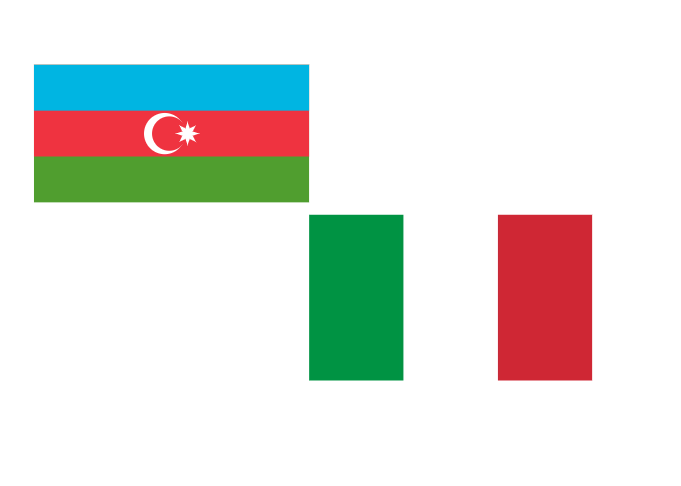BAKU, Azerbaijan, September 4. Azerbaijan's relations with European countries hold a special place in its foreign policy, particularly in light of its current role as the president of COP29 and Italy's leadership of the G7.
As Azerbaijan and Italy take the stage as the presidents of COP29 and the G7, respectively, their partnership transforms into a dynamic powerhouse of strategic collaboration. Italy, one of the nine EU members who signed a strategic partnership agreement with Azerbaijan, plays a key role in these bilateral ties.
The long-standing relationship between the two nations has reached a strategic level with significant potential for future expansion. The designation of 2020 as the "Year of Azerbaijan" in Italy exemplifies the strong friendly relations. Azerbaijan’s President Ilham Aliyev's visit to Italy in early September 2022 was instrumental in enhancing this positive dynamic.
Both Italy and Azerbaijan are key players in their respective regions, and their strong economic relationship lays the groundwork for continued collaborations that are in line with their national interests.
In a September 2022 interview with the Italian newspaper Il Sole 24 Ore, President Ilham Aliyev highlighted the significant role of Italian companies in the reconstruction of Azerbaijan’s liberated territories."Italian companies are very actively working in the liberated areas. I can tell you with respect to the scope of work, Italian companies are second after Turkish companies. And Turkish companies are natural, because it is our ally and close friend. And second, it is our neighbor and they have very prominent construction companies. But second companies from countries are Italian," stated President Ilham Aliyev.
Italian firms have provided equipment for power plants in the liberated regions of Aghdam, Fuzuli, Gubadli, and Kalbajar. They are also involved in restoring historical monuments and mosques in Shusha, as well as contributing to the construction of the Victory Museum in Baku.
Italy is a major trading partner for Azerbaijan, with trade volumes reaching billions of dollars. The energy sector is a key area of cooperation, with Italy importing over a third of Azerbaijan’s oil exports. According to data from the Azerbaijani State Statistics Committee, between January and July 2024, Azerbaijan exported more than 5.67 million tons of oil and petroleum products to Italy, representing 38.59 percent of its total oil export.
Italy is also the largest importer of Azerbaijani gas via the Trans-Adriatic Pipeline (TAP), with eight of ten billion cubic meters of gas transported annually to Italy. In the first half of 2024, Azerbaijan exported 5.17 billion cubic meters of gas to Italy, marking a 5.5 percent increase from the previous year. Overall, Italy imported 31.072 billion cubic meters of gas in the first half of the year, with Azerbaijan’s gas constituting 16.6 percent of this total.
The collaboration extends to renewable energy, with discussions held in July 2024 in Milan regarding potential joint ventures in land-based wind energy and Caspian Sea wind projects. Italian firm Saipem is exploring partnerships for developing green energy corridors. Another Italian company, CESI, is collaborating with Azerbaijan’s Ministry of Energy on a feasibility study for a green energy corridor extending from the Caspian through Azerbaijan, Georgia, the Black Sea, Romania, and Hungary.
Italy is also supporting Azerbaijan's efforts in demining liberated territories as part of the EU's Team Europe initiative, which has allocated 2 million euros this year for mine action, supplemented by contributions from Italy, Germany, France, Croatia, the Netherlands, and Lithuania totaling 2.75 million euros.
In the military sphere, Italy has provided a C-27J Spartan transport aircraft to Azerbaijan, enhancing its defense and civil operations capabilities. Italy has also been vocal in supporting Azerbaijan’s stance on regional peace and has countered provocative remarks from French officials regarding Azerbaijan-Armenia relations.
Overall, Azerbaijan and Italy's strategic partnership spans multiple areas, from energy to defense, reflecting a deep and multifaceted collaboration that enhances economic development, security, and regional stability. Their joint efforts in renewable energy and international climate initiatives underscore the importance of this partnership in addressing global challenges and advancing mutual interests.







